FSU graduate students were highly successful in securing external funding for the 2024-2025 academic year, bringing in 131 grants and fellowships from 66 different funding organizations! The Office of Graduate Fellowships and Awards wants to work with you to make the 2025-2026 academic year even more successful!
If you are interested in applying for fellowships and awards but don’t quite know where to begin, check out the Office of Graduate Fellowships and Awards Let’s Meet webpage for more information on how to jumpstart your fellowships and awards journey.
If you have won an external award for the current academic year, we want to celebrate you. Please submit your award information here.
Fellowship Pro-Tip: Getting Started with the Writing Process
Fall is a busy time in the fellowships cycle, with many major external funding opportunities having deadlines in October and November. Maybe you’ve identified some good fit opportunities, and you’re eager to get going, but the blank page can be intimidating. Where do you start? How do you generate content? In this semester’s Fellowship Pro-Tip, we’ll provide some suggestions to get the ball rolling on writing a fellowship application.
Tip 1: Clarify your purpose in applying. Sometimes, before you can begin writing toward the actual application prompts, you simply need to tell yourself why you’re applying and why you’re a good fit for this award. Put the application essays aside and instead write to answer, Why me, Why now, and Why this award? “Why me” simply means, why are you an ideal candidate for the fellowship you’re applying for? What previous experiences, qualifications, and credentials have shaped your academic trajectory? “Why now” can go in two directions. First, you can consider why now is the right time in your academic or professional timeline to pursue the opportunity provided by an award. Second, you can consider why now is the right time for the work or research you do? Have advances in technology or developments in your field made your research particularly pressing? Are there broader issues in the world that mean your work is timely? “Why this award” is important to consider because each fellowship has a different focus, mission, or goal. Be clear with yourself about why you’ve chosen the fellowship(s) you plan to apply for. Push yourself to write down reasons beyond the amount of funding or the visibility of certain awards.
While most of what you write for these questions won’t make it into your application directly, it will help you think through how you’re positioning yourself as an applicant, and it could be the genesis of your personal statement.
Tip 2: Outline your essays. Outlining is a straightforward tip: begin the writing process with planning the content you need to cover in the application materials. Since space is usually limited in fellowship applications, it’s important to make sure you include all the necessary information, so study the prompt for each written component and study the review criteria. What are they asking for? Make an outline that speaks to the prompt and review criteria.
Tip 3: Give yourself permission to free write. Because fellowship essays are usually limited in word or character count, getting those initial words down on paper can take on an even more intimidating feel. “There’s no room for throat clearing or irrelevant information,” you may think. And you’re right, when it comes to the finished product. But to get started, ignore those word counts and just write. Good applications require multiple drafts, so there’s time to clean up the content. The Fulbright U.S. Student Program application allows only 2,000 characters for a prompt asking applicants to “Please explain how you will adapt to working and living in a new environment in the host country. Consider the ways in which you have grown throughout your life that make you the individual you are today.” Almost everyone will have more examples, more experiences, more thoughts about this prompt than they could possibly fit into 2,000 characters. And maybe, to find the examples that are most compelling in the context of Fulbright, you need to try out multiple ideas. If you constrain yourself to the character count, you may never get those other ideas down on paper, and you may miss out on including the most compelling content. So, free write toward the prompts you’ve given in the application. Try out multiple ideas, include notes to yourself, and give yourself permission to experiment. It won’t all be useful content, but it will get you past the blank page, and that’s the point.
Tip 4: Join us for a workshop on “Getting Started with Fellowship Application Writing.” OGFA will be joined by staff from the FSU Reading-Writing Center, who will facilitate a workshop aimed at helping you get started with application writing.
Ultimately, the goal is simply to write. Remember, the only point of a first draft is to exist, and you’ll never complete the application essays if you don’t start them. So, roll up your sleeves, get comfortable, and get those first words down!
Fall 2025 Professional Development
If you are a current FSU student, please register with your FSU email.
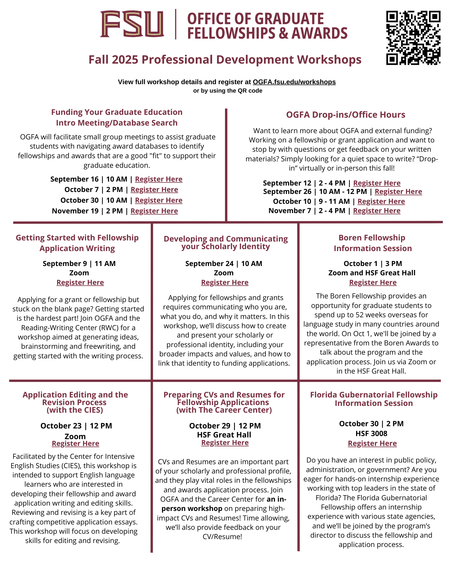
Funding Your Graduate Education: Intro Meeting/Database Search
OGFA staff will facilitate small group meetings to assist graduate students with navigating award databases to identify fellowships and awards that are a good "fit" to support their graduate education.
- September 16 | 11:00 AM | Register here
- October 7 | 2:00 PM | Register here
- October 30 | 10:00 AM | Register here
- November 19 | 2:00 PM | Register here
OGFA Office Hours/Drop-in to Write Sessions
Want to learn more about OGFA and the role of external funding? Working on a fellowship or grant application and want to stop by with questions about the application or feedback on your written materials? Simply looking for a quiet space to work on your fellowship application? Drop by virtually (via Zoom) or in person (in the HSF Great Hall) during our office hours this semester!
- September 12 | 2:00-4:00 PM | Register here
- September 26 | 10:00 AM - 12:00 PM | Register here
- October 10 | 9:00-11:00 AM | Register here
- November 7 | 2:00-4:00 PM | Register here
Getting Started with Fellowship Application Writing (with the RWC)
September 9 | 11:00 AM | Zoom | Register here
Applying for a grant or fellowship but stuck on the blank page? Getting started is the hardest part! Join OGFA and the Reading-Writing Center (RWC) for a workshop aimed at generating ideas, brainstorming and freewriting, and getting started with the writing process.
Developing and Communicating your Scholarly Identity
September 24 | 10:00 AM | Zoom | Register here
Applying for fellowships and grants requires communicating who you are, what you do, and why it matters. In this workshop, we’ll discuss how to create and present your scholarly or professional identity, including your broader impacts and values, and how to link that identity to funding applications.
Boren Fellowship Information Session
October 1 | 3:00 PM | Hybrid | Register here
The Boren Fellowship provides an opportunity for graduate students to spend up to 52 weeks overseas for language study in many countries around the world. On Oct 1, we'll be joined by a representative from the Boren Awards to talk about the program and the application process. Join us via Zoom or in the HSF Great Hall.
Application Editing and the Revision Process (with the CIES)
October 23 | 12:00 PM | Register here
Facilitated by the Center for Intensive English Studies (CIES), this workshop is intended to support English language learners who are interested in developing their fellowship and award application writing and editing skills. Reviewing and revising is a key part of crafting competitive application essays. This workshop will focus on developing skills for editing and revising.
Preparing CVs and Resumes for Fellowship Application (with The Career Center)
October 29 | 12:00 PM | HSF Nancy H. Marcus Great Hall | Register here
CVs and Resumes are an important part of your scholarly and professional profile, and they play vital roles in the fellowships and awards application process. Join OGFA and the Career Center for an in-person workshop on preparing high-impact CVs and Resumes! Time allowing, we’ll also provide feedback on your CV/Resume!
Florida Gubernatorial Fellowship Information Session
October 30 | 2:00 PM | HSF 3008 | Register here
Do you have an interest in public policy, administration, or government? Are you eager for hands-on internship experience working with top leaders in the state of Florida? The Florida Gubernatorial Fellowship offers an internship experience with various state agencies, and we’ll be joined by the program’s director to discuss the fellowship and application process.
Please use this link to enroll in OGFA’s Fellowships Canvas Courses. We created those sites to guide students through the process of applying for competitive fellowships, scholarships, and awards. Resources include introductions to various funding mechanisms, annotated and supplemental guides designed to assist students in various stages of the fellowship application cycle for each award, webinar links (if available), tips and links to a variety of other resources.
P.E.O. International Peace Scholarship
The P.E.O. International Peace Scholarship (IPS) Fund provides scholarships to international women pursuing graduate degrees in the U.S. and Canada. IPS recipients carry the spirit of P.E.O. back to their home countries where the degrees they have earned positively impact people’s lives around the globe. The maximum amount awarded to a student is $12,500.
Eligibility Form Deadline:
December 15, 2025
Mellon/ACLS Dissertation Innovation Fellowship
This fellowship supports doctoral students in the humanities and interpretive social sciences, providing a one-year, $50,000 award during the formative stages of dissertation research. The fellowship aims to encourage innovative dissertation research, including new methodologies, formats, and collaborations with community partners beyond the academy.
Deadline: October 29, 2025
Link Foundation Energy Fellowships
In an effort to foster education and innovation in the area of societal production and utilization of energy, the Link Foundation provides two-year fellowships for doctoral students. The fellowships provide $35,000 and are open to domestic and international students. The application portal opens October 1.
Deadline: December 1, 2025
Boren Fellowship
Boren Fellowships provide up to $30,000 to U.S. graduate students to add an important international and language component to their graduate education through specialization in area study, language study, or increased language proficiency. Boren Fellowships support study and research in areas of the world that are critical to U.S. interests. Contact OGFA for more info about our campus application process
Campus Deadline: November 20, 2025
Graduate Students in the News
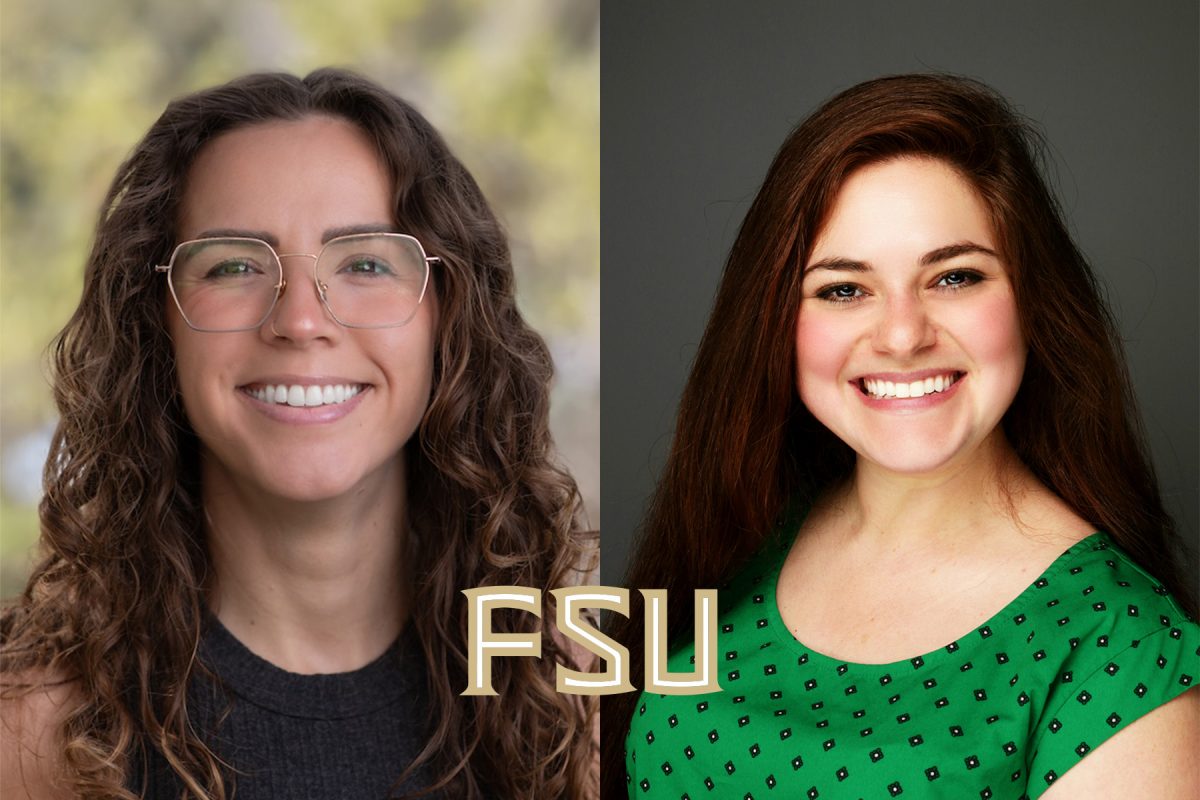
Two FSU doctoral students selected for competitive Philanthropic Educational Organization scholarships
Clinical psychology doctoral student Morgan Robison and history doctoral student Danielle Wirsansky, both from the College of Arts and Sciences, have received 2025-2026 Scholar Awards from the Philanthropic Educational Organization, or P.E.O., a nonprofit organization dedicated to uplifting women through education.
Read more.
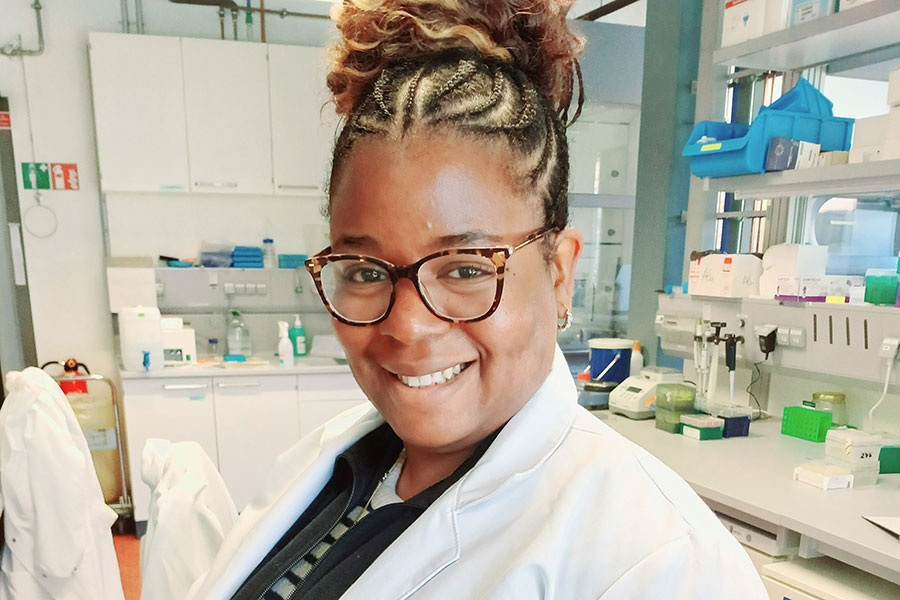
FSU Ph.D. student enriches understanding of global science and depression through Fulbright Fellowship
Nella Delva, who graduated with her Ph.D. from the Department of Biomedical Sciences at FSU’s College of Medicine in May, spent the past year expanding her studies with enhanced technology at the Max Delbrück Center for Molecular Medicine in Berlin as a recipient of the Fulbright Study/Research Award.
Read more.
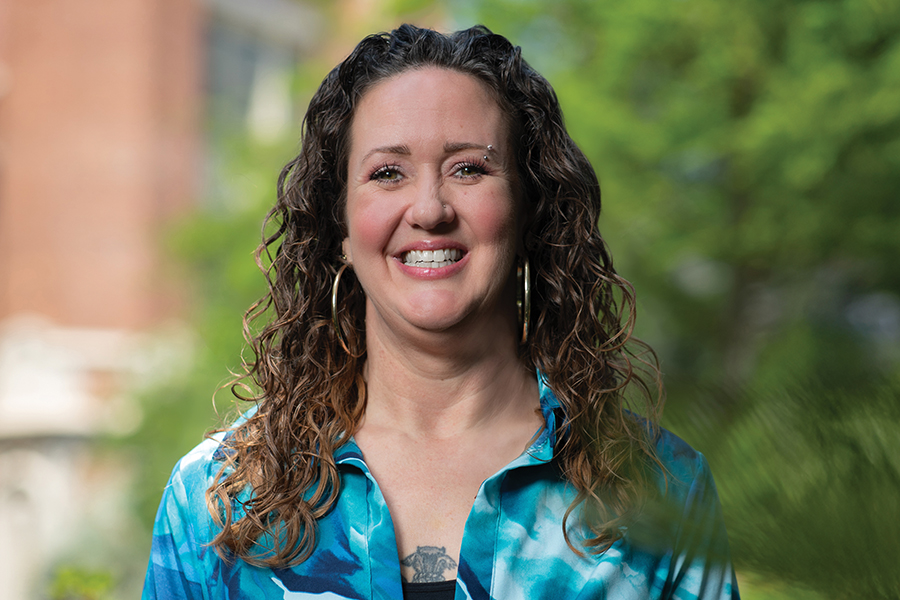
Doctoral student Susan Cox’s phonetics research uncovers differences in dialects, affecting second-language acquisition
Fourth-year Florida State University doctoral student Susan Cox studies linguistics and is using acoustic analyses to uncover important differences across dialects in the same language. Her phonetics research is informing linguistic theory and the practical and daily communications that make it simpler for people to acquire second-language proficiency. Read more.
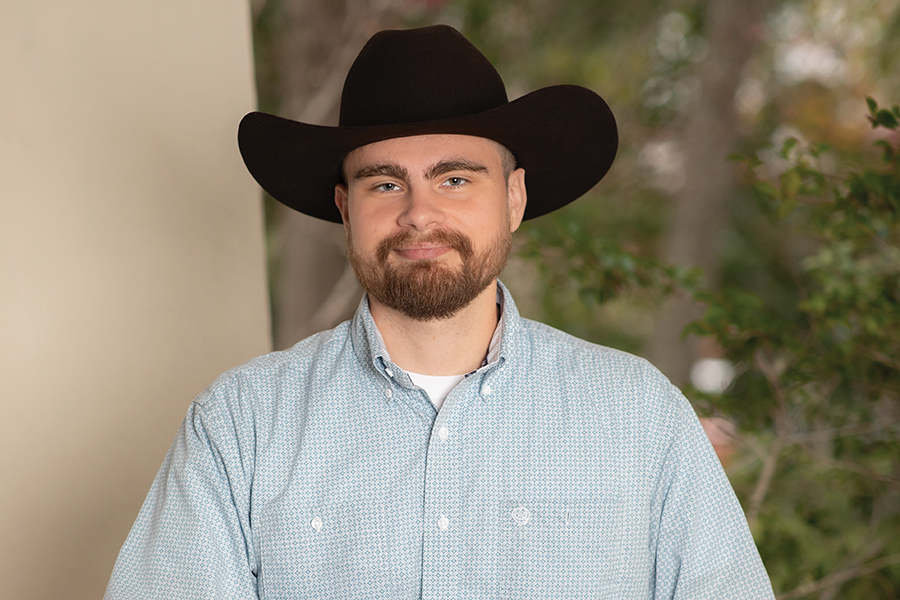
History doctoral student Dean Michel explores Indigenous landscape histories, education, and sacredness to inform modern land-management practices
Florida State University history doctoral student Dean Michel considers it his mission to preserve indigenous land and historical places by advising policymakers on the heritage and practices of Indigenous communities, so they make informed decisions about the construction and care of man-made and natural waterways. Read more.
Celebrating Graduate Education
The work and research in action of graduate students at Florida State University broadly impacts the campus community and the world around us. The Grad Impact: Digital Narratives Project captures and amplifies the lived graduate student experience at FSU. Check out some of our grad student highlights below.
If you are interested in sharing your experience and research, please submit your profile info here.
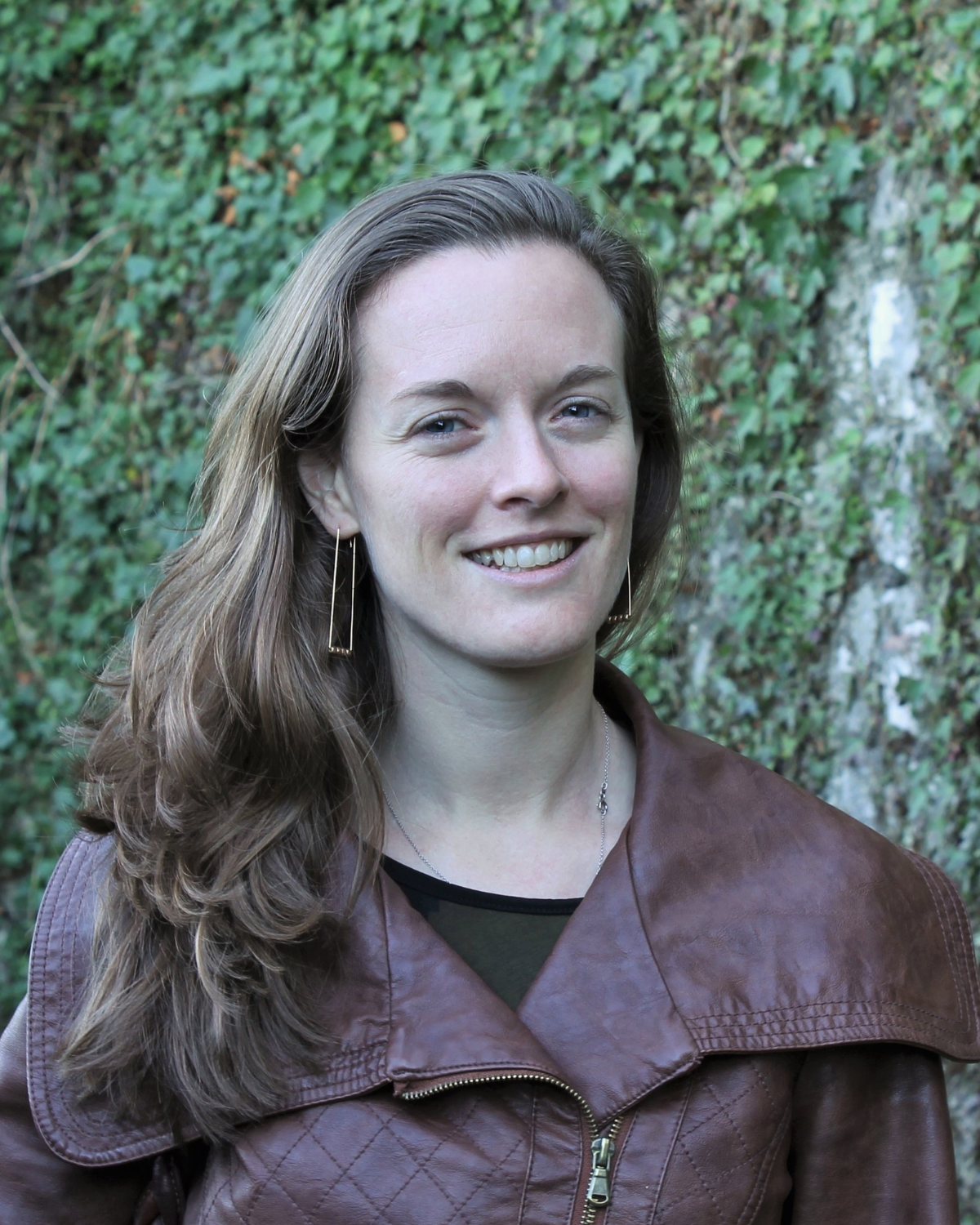
Rachel Wall
Teaching English to Speakers of Other Languages
"Education is the premise of liberation"
View Profile
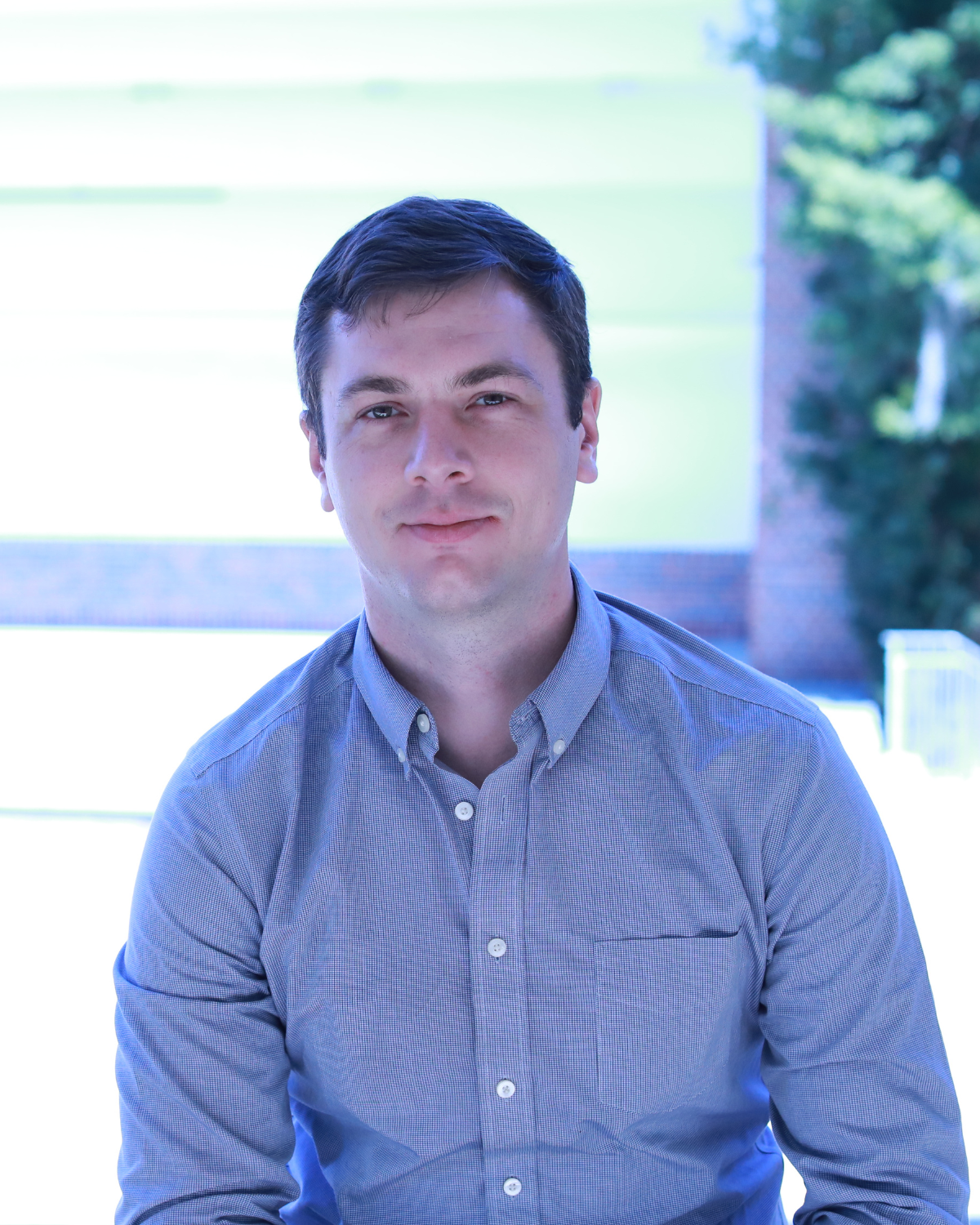
Julian Duncan
Musicology
"Critical thinking, networking, opportunities, expert mentors"
View Profile
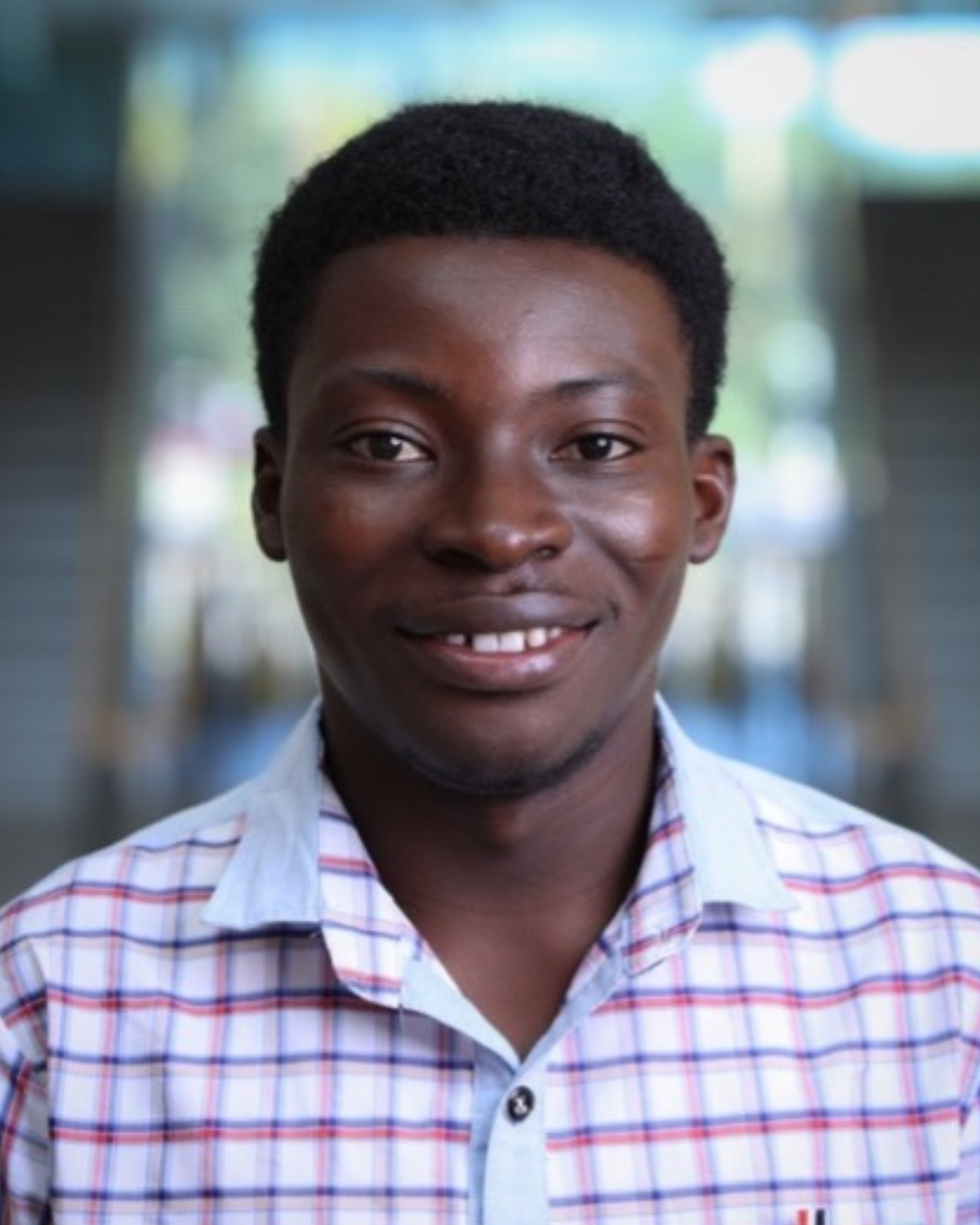
Collins Awiaga
Biological Science
"Advance knowledge, drive discovery, enhance career prospects and personal growth"
View Profile
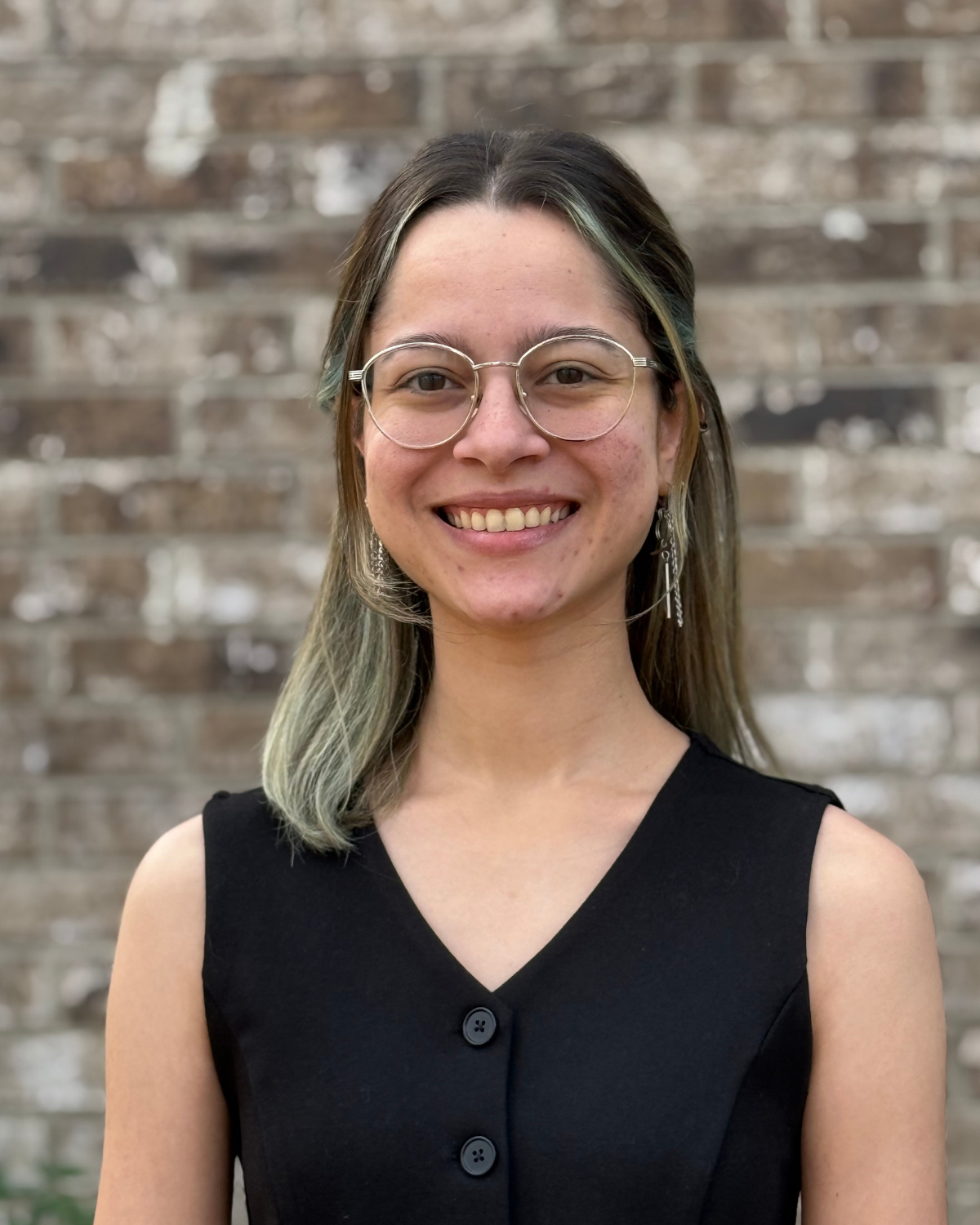
Mariela Marques
Neuroscience
"Contributing towards the increase of knowledge"
View Profile
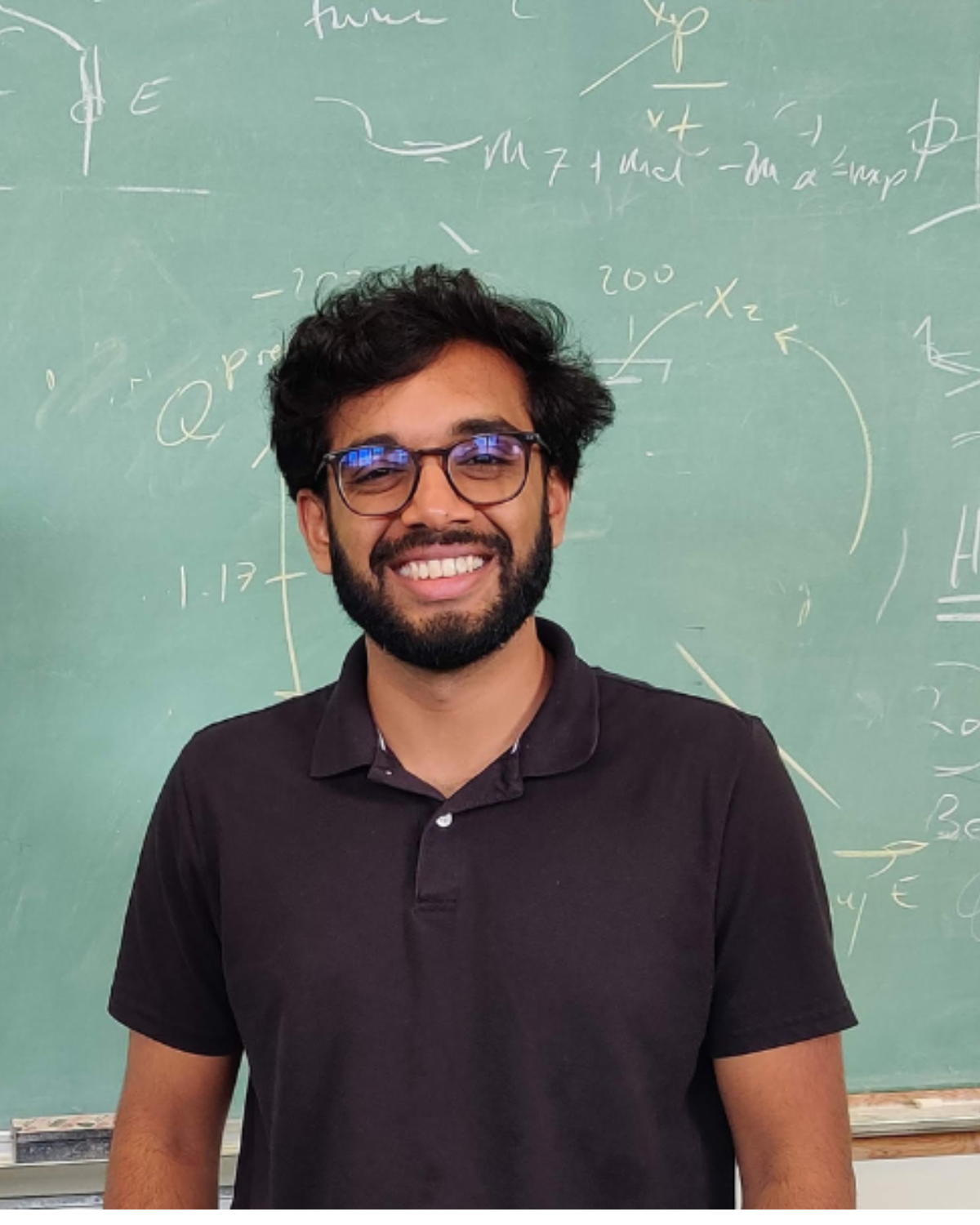
Vignesh Sitaraman
Physics
"Expertise. Opportunities. Passion. Advancement. Personal Growth."
View Profile
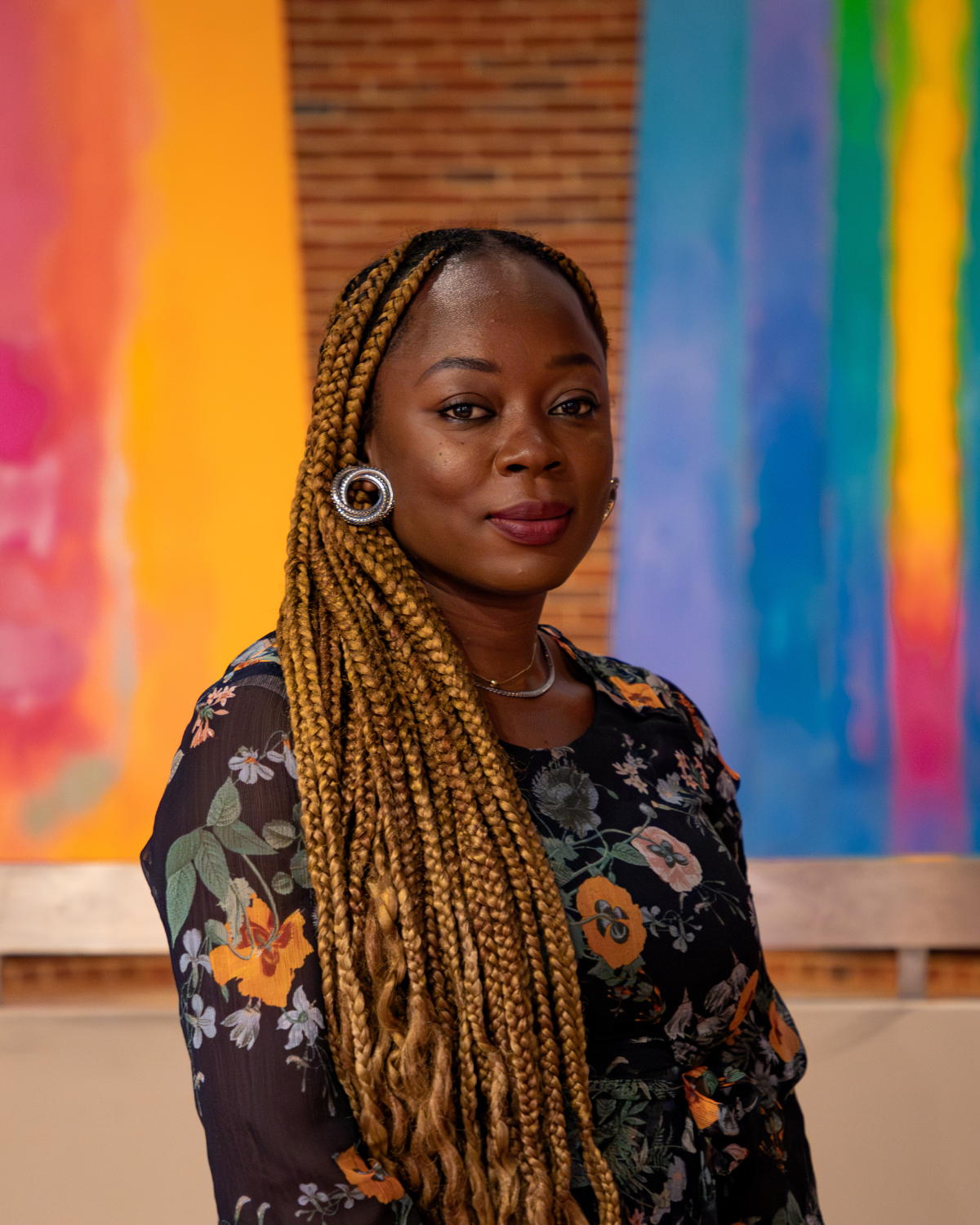
Amarachi Odimba
Studio Art
"Growth, impact, teaching, mentorship, dialogue and community"
View Profile
Click here to see more #Gradimpact student profiles.
Second Annual Graduate Student Op-Ed Competition
Are you a doctoral student interested in developing your research communication skills? If so, register here to participate in the Second Annual Graduate Student Op-Ed Competition! Registration is now open and closes on Friday October 10, 2025, at 11:45 PM.
The Graduate Student Op-Ed Competition is an academic research writing competition that challenges graduate students to present their research and its significance to a general audience via a concise opinion piece known as an op-ed. Op-eds are limited to 600 words and will be judged by a diverse panel of readers. All currently enrolled FSU graduate students are eligible to participate. Learn more about the Op-Ed Competition here.

